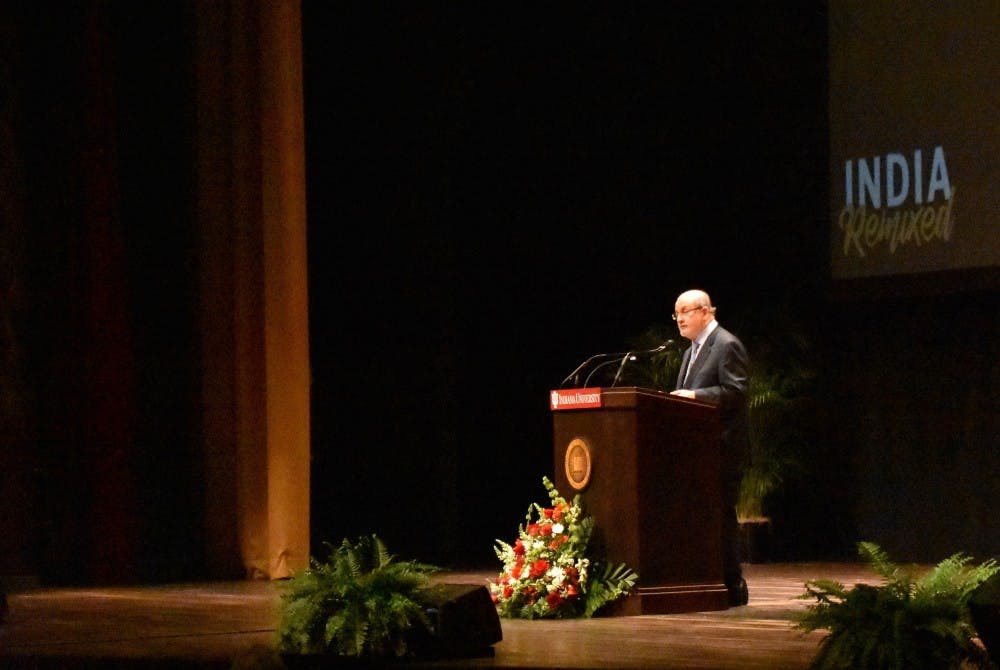Salman Rushdie received an honorary degree March 29 from IU's president and provost in conjunction with the University’s Arts and Humanities Council.
The event, which also featured a speech by Rushdie, was part of the 2018 Global Arts and Humanities Festival, India Remixed.
Rushdie is a British-Indian novelist and essayist who was born in Bombay just two months before India and Pakistan gained their independence from the United Kingdom. His work is primarily fictional but often grapples with difficult realities, like how the fledgling India he was born into learned to govern itself.
The version of India Rushdie presented to his readers was the first version many Americans saw, IU Provost Lauren Robel said.
President Michael McRobbie praised Rushdie for his dedication to humanism and the way his novels, such as "Midnight’s Children" and "The Satanic Verses," reflect it.
Thursday evening, following the fanfare of receiving his honorary degree, Rushdie spoke to a crowd of more than 1,000 in the IU Auditorium about what fiction looks like.
His lecture, titled ‘Wonder Tales: East Meets West,’ explored how the east and the west handle the fiction genre differently.
He said the fantastical tales he was told as a child taught him things don’t always have happy endings. Sometimes fiction is just one shade off from reality.
“For me, the fantastic is a way of adding dimension to the real,” he said.
He talked about growing up in an India full of wonder tales and not being able to believe western stories. He said the kids had too much independence in western tales. He told stories familiar to his childhood about crows waging war on owls and tyrants who slaughtered thousands of women to get revenge on one.
Rushdie mentioned how eastern fiction, in comparison to western fiction, is less likely to have some kind of moral revelation at the end.
“They don’t guarantee the triumph of virtue,” he said of eastern tales.
He said western stories seem uncomplicated when compared to the “Quentin Tarantino savagery” of the stories he listened to as a child.
He urged the audience to turn to what he called unrealism, saying it can be more powerful than reality.
“Write what you know, but only if what you know is really interesting,” he said. “I’m in favor of continuing to make things up.”
Rushdie said conventional writing wisdom isn’t always good advice. He said writers should push themselves beyond those conventions.
“We are all dreaming creatures,” he said. “Dream on paper.”
He added one final thought.
“But if it comes out like Twilight or The Hunger Games, tear it up and have a better dream.”




